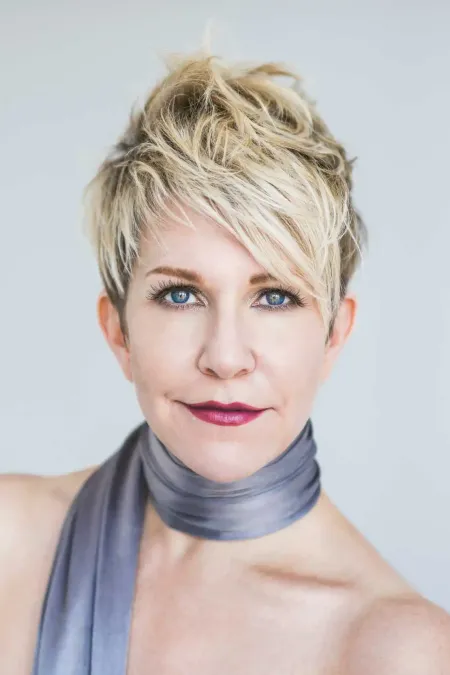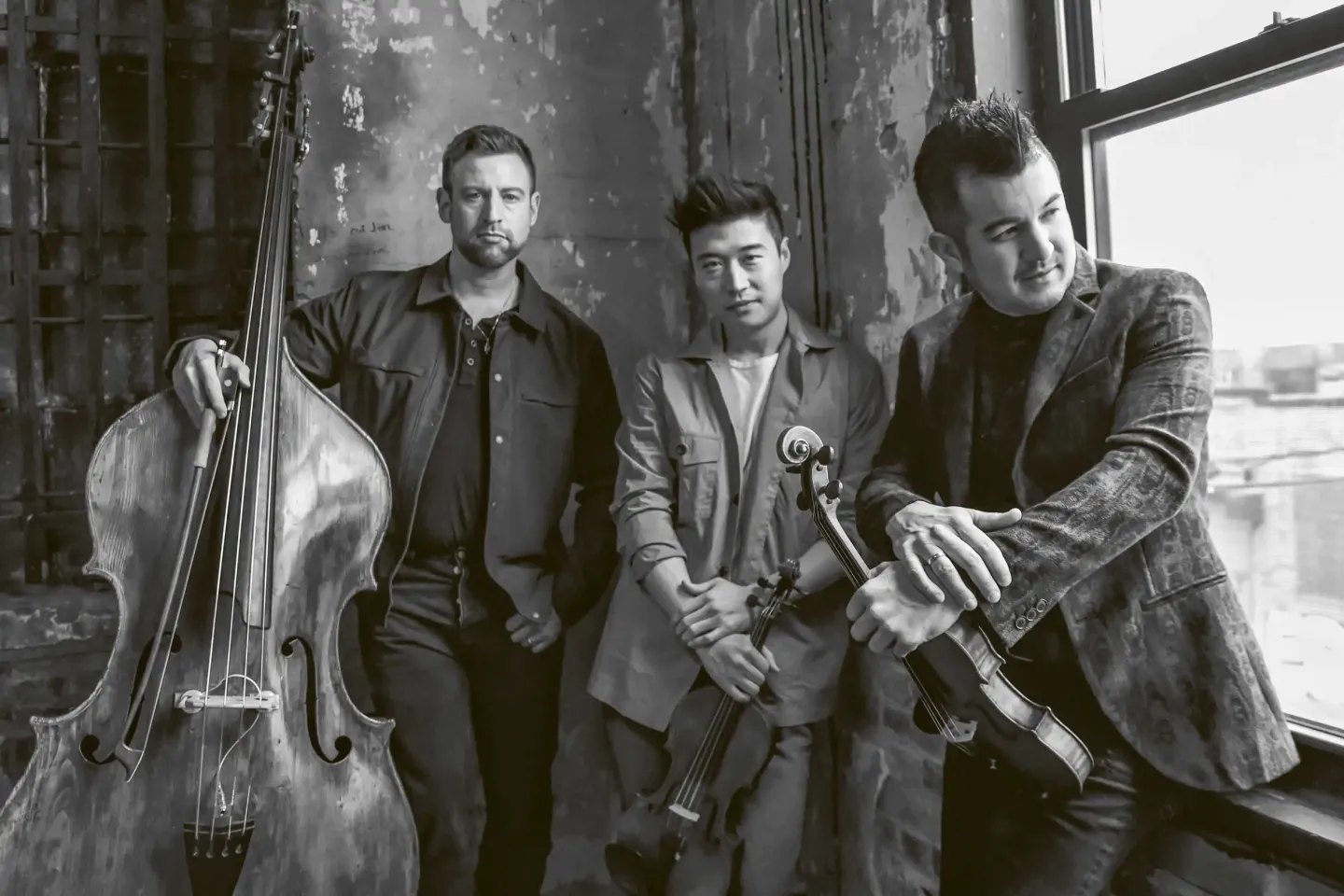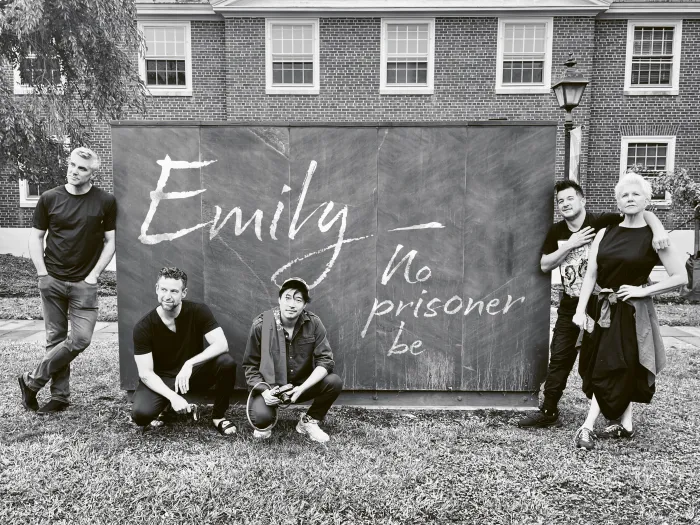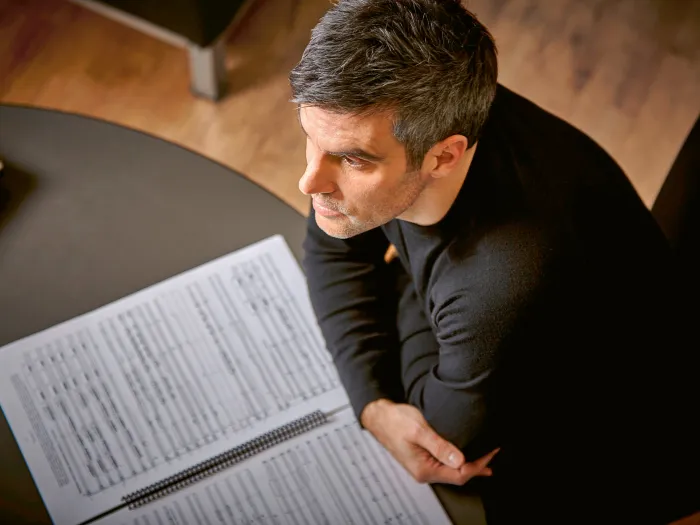Interview by Babette Karner.
The text was published in edition 3 (06/25).
Reading time 4 Min.
"She touched my heart”
The US-American mezzo-soprano Joyce DiDonato is one of the most fascinating artists of our time – celebrated for her versatility, depth, and curiosity. In the Emily — No Prisoner Be, she joins forces with composer Kevin Puts and the ensemble Time for Three to engage deeply with the work of US-American poet Emily Dickinson. In conversation, DiDonato speaks about her formative first encounter with Dickinson's poetry, the creative force behind this unique collaboration, and the artistic freedom this project brings – both personally and professionally.

Do you remember your first encounter with Emily Dickinson’s work? Was it love at first sight?
Joyce DiDonato: I first came across Emily Dickinson’s work during my studies when I was preparing several of Aaron Copland’s settings of her poems for my final recital as a student. Her poetry moved me so deeply that in 2007 I decided to record Copland’s entire song cycle Twelve Poems of Emily Dickinson for my first solo album. I’m not sure if “love at first sight” is quite the right expression for what I felt, but her words touched my heart. I knew immediately that she would forever be part of my artistic life.
You previously collaborated with composer Kevin Puts on the staged world premiere of The Hours at the Metropolitan Opera in New York in 2022. Why is he the right person to write a stage work about Emily Dickinson?
The piece Emily — No Prisoner Be is entirely Kevin’s concept and idea. He told me that the moment he first encountered Dickinson’s poem They shut me up in Prose, he knew he wanted to set it to music. A connection like that between two artistic souls often sparks a true firework of creativity – and that’s exactly what happened here. At the same time, Kevin Puts brings a wonderful childlike sense of wonder and reverence for the dignity, simplicity, and scope of Emily Dickinson’s language – a true dream combination!
How does the music in Emily — No Prisoner Be interact with Dickinson’s poetry? Does it follow the text closely, or does it sometimes oppose it?
That’s something best left to the audience to decide – how they experience and encounter the work. For me as a singer, the music is in complete harmony with poetry. In fact, it seems to penetrate and illuminate its innermost meaning in astonishing ways. It feels as though Kevin’s music and Dickinson’s words were always destined to find one another.
In the piece, Emily Dickinson is portrayed through a multitude of voices and states of mind. How will you express that vocally and theatrically?
As we move toward the premiere in August, there’s still much to discover – Emily — No Prisoner Be is a world premiere, after all. But the magic of this piece – just like Dickinson’s poetry – lies in the fact that each poem, each individual section, exists in its own universe. And yet everything is connected by an invisible thread. I don’t know how Kevin manages to create such varied soundscapes with just three instruments and one voice. But Emily Dickinson too, with nothing more than the English language, opens up entire worlds of surprising color, versatility, and insight. The key is to give each part of the work the space it needs to fully unfold – and to trust that this will create an extraordinary experience for the audience.

Together with the ensemble Time for Three and composer Kevin Puts, Joyce DiDonato embarks on a musical journey through the poetry of Emily Dickinson.
The ensemble Time for Three is known for its remarkable musical versatility and its ability to blend classical music with pop, jazz, rock, folk, and hip-hop. What role does Time for Three play in the creative development of Emily — No Prisoner Be?
We began working together on this new piece over a year ago. Every few months, we would meet to explore and refine individual sections. It was a profoundly enriching collaboration – full of joy, trust, and artistic inspiration. Kevin Puts took detailed notes, we musicians debated the tempos – and ultimately ended up right where he had marked them in the score. Most of all, we laughed a lot and shared many hugs. We also spent two wonderful weeks away from the city, in the quiet landscape north of New York City, to record Emily — No Prisoner Be – a truly luxurious span of time to bring such a complex work to life. We want to give Emily Dickinson the stage she deserves – and we hope we’ll be able to move the audience deeply in doing so. It has been – and continues to be – a true bond of shared passion, as we all work toward the best possible result. A part of me is already a little sad that our shared life in this small, creative, isolated world will soon come to an end.
Stage director Andrew Staples spoke of a very open rehearsal process with lots of improvisation. As a singer more accustomed to tightly structured opera rehearsals, how did you experience this kind of freedom?
I live for this kind of freedom! Emily — No Prisoner Be is the most creative project I’ve ever been a part of. It has helped me grow, both professionally and personally. All of us are fully focused on making this piece as impactful as possible – with not a trace of ego. It’s like paradise!
We want to give Emily Dickinson the stage she deserves.
Joyce DiDonato is one of today’s leading opera singers. Born in Kansas (USA), she rose to international prominence in roles by Handel, Mozart, and Rossini. Her warm timbre, technical brilliance, and dramatic intensity captivate audiences and critics around the world. In addition to her opera career, DiDonato is committed to music education and social outreach. With innovative programs and powerful messages, she is setting new standards in the world of classical music.




